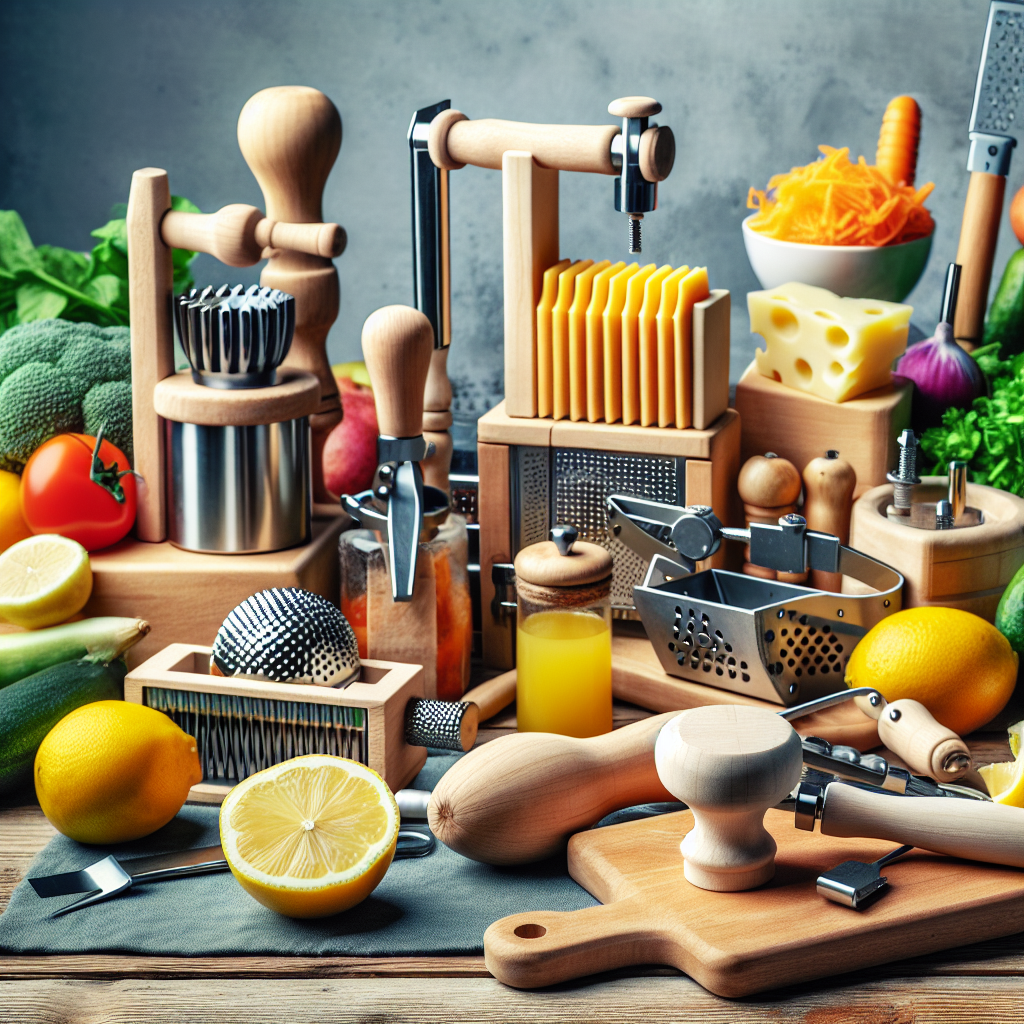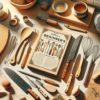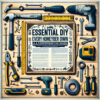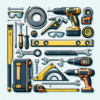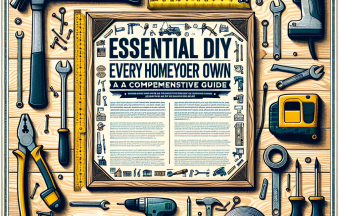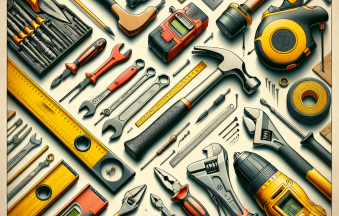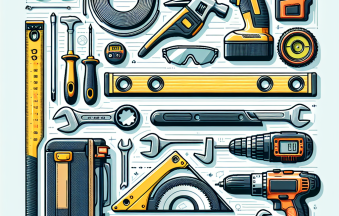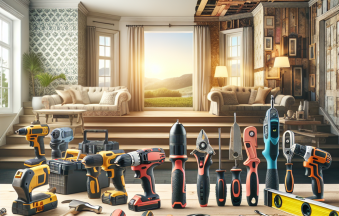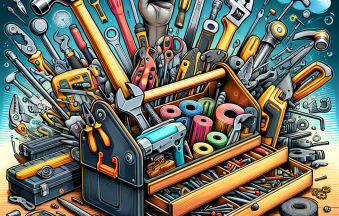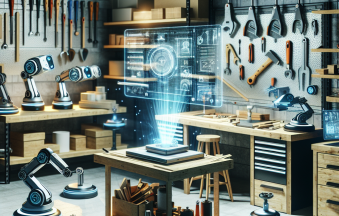DIY (do-it-yourself) endeavors are an excellent method to elevate your environment, conserve funds, and express your imagination. However, before you commence on these tasks, possessing the appropriate tools is essential. This guide will navigate you through an array of DIY tool categories that will enable you to approach home enhancement projects with assurance. Whether you are a veteran DIY aficionado or merely beginning, grasping the crucial tools in each category can make a significant impact.
Home Tools: The Fundamentals of DIY Projects
When you jump into DIY, the initial step is to arm yourself with the correct home tools. A sturdy toolbox is vital for keeping your equipment organized. Think about investing in a premium tool belt to maintain the tools you frequently use within easy reach. In addition to storage, a sturdy workbench provides a comfortable space to work on projects. Opt for one that has adjustable height and sufficient surface area to handle your various tasks.
Construction Materials: The Cornerstone of Every Project
Before you begin, ensure you have the proper construction materials. This includes components such as lumber, drywall, and insulation. For woodworking assignments, possessing an assortment of timber in various dimensions will offer the necessary versatility for customization.
A well-furnished supply cart can enhance your workflow. Always maintain a healthy stockpile of screws, nails, and adhesive for assembly, as these small items are often neglected yet vital for securing your projects.
Electrical Instruments: Bright Solutions for Home Renovation
Electrical tasks may daunt some DIYers, but with appropriate tools, they become feasible. Begin with a trustworthy voltage tester to assure safety before starting any electrical endeavors. Similarly, a wire stripper will assist in preparing wires for connections effortlessly.
For actual installations, a high-grade drill is indispensable. Consider a cordless drill for its adaptability and user-friendly design. Always remember to comply with safety standards when handling electrical components, and don’t hesitate to consult an expert if a job appears complicated.
Hardware & Fasteners: The Overlooked Champions of DIY
Hardware and fasteners may appear trivial, but they are crucial for the stability of your projects. Stock up on screws, bolts, and nuts in a variety of sizes to ensure you are prepared for any project. Seek out anchor screws for additional stability in drywall applications.
A reliable screwdriver set—comprising flathead and Phillips—is essential. Consider investing in a ratchet set for effortless tightening and loosening of bolts. These tools facilitate smoother assembly and enhance the durability of your projects.
Kitchen & Bathroom Tools: Enhancing Vital Areas
The kitchen and bathroom can reap significant rewards from DIY enhancements. To address tasks in these spaces, a plumbing wrench is vital for fixture installation. A tile cutter can be invaluable if you intend to install a new backsplash or flooring.
Moreover, having a collection of adhesives suitable for kitchen and bath applications—like waterproof caulks—is essential for sustaining functionality and aesthetics. Always ensure you follow best practices for installation to prevent common issues such as leaks or uneven surfaces.
Light Bulbs & LEDs: Brightening Your Environment
Illumination can transform a residence, and with the advent of LED technology, homeowners now have more options than ever. Acquaint yourself with the various types of light bulbs available. LEDs are energy-efficient, long-lasting, and offered in an array of styles and brightness levels.
Consider utilizing smart bulbs that can be managed through apps or smart home systems. This not only adds convenience but can significantly enhance your home’s atmosphere. Remember to check the lumens for brightness and kelvins for color temperature to select the appropriate bulbs for your requirements.
Lighting & Fans: Setting the Ideal Mood
Achieving the desired atmosphere often depends on appropriate lighting and airflow. Beyond conventional light fixtures, incorporating a ceiling fan can enhance air circulation and render spaces more comfortable. Look for fans with remote control capabilities for added ease.
When fitting light fixtures, consider utilizing a stud finder to locate secure anchoring points. This straightforward tool can save you the trouble of managing loose or improperly mounted fixtures.
Measuring Instruments: Accuracy is Essential
Successful DIY projects rely on precise measurements. Essential measuring instruments include a tape measure, level, and square. A high-quality laser level can significantly improve precision for larger projects, such as mounting shelves or aligning frames.
For smaller jobs, a caliper can assist with accurate measurements, especially for intricate woodworking. Always recheck your measurements before cutting or assembling to prevent costly errors.
Paint & Wall Materials: The Final Enhancements
No DIY project is complete without a touch of color or some visual upgrades. Quality paint brushes and rollers can make substantial differences in the appearance of your walls. Don’t forget to gather drop cloths and tape to shield surfaces and achieve crisp lines.
Selecting the appropriate type of paint is equally crucial. Whether you opt for washable finishes in the kitchen or decorative paints for accent walls, understanding the various finishes—matte, satin, or gloss—can aid in reaching your design aspirations.
In conclusion, arming yourself with a varied collection of DIY tools is vital for successful home improvements. With the correct setup, you can confidently take on any task, regardless of size, leaving your unique mark on your living spaces. Whether you are organizing your tools, picking the ideal building materials, or ensuring adequate lighting, each aspect of DIY contributes to crafting a home that mirrors your style and fulfills your needs. The journey of DIY is one filled with creativity and fulfillment—now, go and unleash your inner creator!

